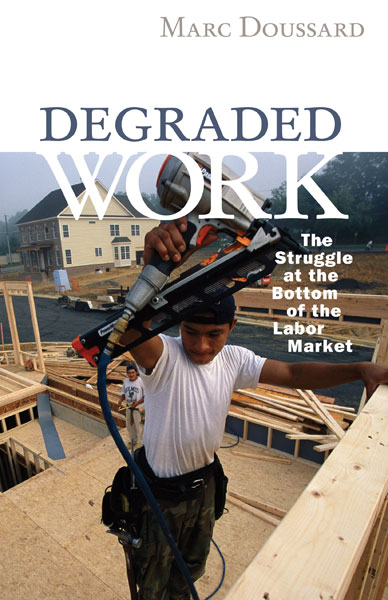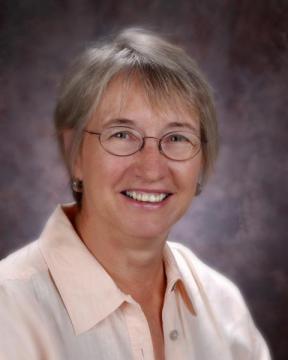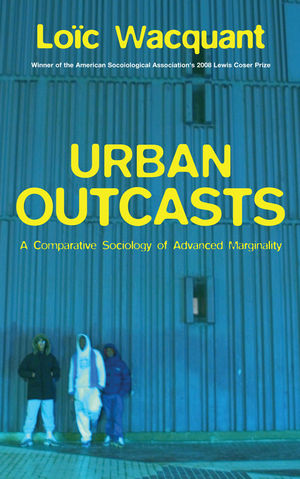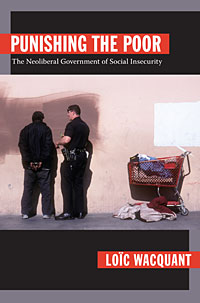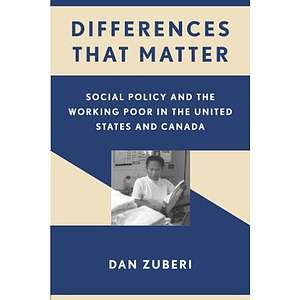Tagged: neoliberalism
[Podcast] Degraded Work and Inequality in the North American City
Marc Doussard discusses how deteriorating employment conditions in the North American city are directly related to urban inequality
Listen here.
Does the growth of service sector jobs in North American cities inevitably lead to greater urban inequality? What are the implications of deteriorating job quality in our cities? How can organizers, workers, and policymakers challenge the degradation of work?
On the podcast, Marc Doussard discusses his recent book, Degraded Work: The Struggle at the Bottom of the Labour Market, based on extensive field research in Chicago.
His 2013 book, published by the University of Minnesota Press, “details the deteriorating conditions of employment in local-serving industries immunized against international competition. The book builds on a long-term engagement with regional economic development, and challenges the assumption that low pay and poor working conditions are intrinsic characteristics of service-sector jobs.”
Marc Doussard is assistant professor of urban and regional planning at the University of Illinois at Urbana-Champaign.
[Podcast] Labour, Economic Security, and the Struggle at the Bottom
In the first half of the program, Dr. Marjorie Griffin Cohen (Economist and Professor, SFU Department of Political Science and Women’s Studies) discusses current issues facing low-wage workers as well as the labour movement in British Columbia. On the podcast, we examine the intersections of economic insecurity for workers, high housing costs, and the inadequacy of current social programs and policies in the Lower Mainland.
She contextualizes current conditions facing many of the province’s low-wage and precariously employed workers by reflecting on the legacy of major labour market policy and employment standards changes following the election of the BC Liberal government in the early 2000s. Additionally, we discuss the prospects of Unifor, now Canada’s largest private sector union, and the possibilities of greater organizing potential within traditionally low-wage and non-unionized sectors.
Dr. Cohen has written extensively in the areas of political economy and public policy with special emphasis on issues concerning the Canadian economy, women, labour, electricity deregulation, energy and the environment, and international trade agreements. She was the principle investigator of a five-year SSHRC Community-University Research Alliance Grant (CURA). This project (called the Economic Security Project) focused on the study of the impact of government policies on vulnerable populations and how to construct policy to meet the needs of these people. Her most recent books are Public Policy for Women and Remapping Gender in the New Global Order.
On the second half of the program, we hear from Ben Isitt, a Victoria City Councillor, legal scholar and labour historian. He tells the often tumultuous history of British Columbia’s labour movement, and in doing so, provides a window into the movement’s past challenges and future opportunities. Ben Isitt is author of From Victoria to Vladivostok and Militant Minority.
[Podcast] Becoming Urban in Asia
The first half of the 21st century is anticipated to be a period of continuing large-scale urbanization in the developing world, with much of this occurring in Asian countries, especially China and India. This fundamental, on-going change in Asia presents, on the one hand, prospects for economic prosperity, new visions of an urban future and the potential for local democratization, and on the other, challenges of increasing economic and social inequities, increased resource consumption and environmental degradation. Underlying all these problems and possibilities are fundamental research challenges for scholars to consider.
On February 27, 2013, urban scholar John Friedmann (UBC School of Community and Regional Planning) reflected on the broad topic of urbanization in Asia, highlighting issues of environmental degradation, socioeconomic inequality, and local democracy.
The talk was hosted by the Liu Institute’s Comparative Urban Studies Network, in partnership with the Institute of Asian Research Asian Urbanisms Cluster.
Rabble.ca Contributor Michael Laxer on Rob Ford | Inaugural Engaging Women, Transforming Cities Conference Brings Equity Lens to Urban Issues
The Rob Ford saga shows no signs of dissipating. Is this the end of Mayor Rob Ford’s bumpy tenure at Toronto City Hall? On the podcast, rabble.ca contributor Michael Laxer weighs in on the ongoing Rob Ford saga. He provides a critical and progressive analysis of the Rob Ford affair in a recent article.
And in the second half of the show, we hear about the Engaging Women, Transforming Cities Conference from Associate Professor Margot Young (UBC Law). The inaugural national conference is designed to facilitate discussion about transforming our cities into places where women are more involved in electoral processes, and municipal governments are responsive to the priorities of women and girls in Canada’s urban centres. The conference applies an equity lens to a variety of urban issues, ranging from housing justice to environmental sustainability.
MUSIC // Japandroids / Celebration Rock / Younger Us // Mother Mother / Sticks / Business Man
Subscribe via iTunes to have the weekly podcast downloaded automatically.
[Podcast] The Production and Penalization of the Precariat in the Neoliberal Age (Part II): Transformation of the Ghetto
Subscribe via iTunes to have the weekly podcast downloaded automatically.
This is the second podcast of a two-part series (listen to the first part), focusing on the transformation of the ghetto and the emergence of workfare and prisonfare under neoliberalism.
On November 1st, 2012, Loic Wacquant gave a public lecture organized by the University of British Columbia’s Liu Institute for Global Studies and the Department of Geography. His talk is entitled, “The Production and Penalization of the Precariat in the Neoliberal Age.”
Loic Wacquant is professor of sociology at the University of California at Berkeley and a researcher with the European Centre of Sociology and Political Science in Paris. He is the author of many books and articles, including Urban Outcasts: A Comparative Sociology of Advanced Marginality, Prisons of Poverty, and Punishing the Poor: The Neoliberal Government of Social Insecurity.
[Podcast] The Production and Penalization of the Precariat in the Neoliberal Age (Part I)
Subscribe via iTunes to have the weekly podcast downloaded automatically.
Loic Wacquant is professor of sociology at the University of California at Berkeley and a researcher with the European Centre of Sociology and Political Science in Paris. His research focuses on comparative urban marginality with a focus on Chicago’s South Side and Paris’s racialized urban periphery. Wacquant’s research also looks at broader issues of urban poverty, ethno-racial domination, the penal state, and social theory. He is the author of many books and articles, including Urban Outcasts: A Comparative Sociology of Advanced Marginality, Prisons of Poverty, and Punishing the Poor: The Neoliberal Government of Social Insecurity.
On November 1st, 2012, Loic Wacquant gave a public lecture organized by the University of British Columbia’s Liu Institute for Global Studies and the Department of Geography. His lecture is entitled, “The Production and Penalization of the Precariat in the Neoliberal Age.” This podcast is part one of a two-part series.
[Podcast] Differences That Matter: Social Policy and Quality of Life in US and Canadian Cities
Subscribe via iTunes to have the weekly podcast downloaded automatically.
On the podcast, urban sociologist Daniyal Zuberi discusses the importance of social policy for quality of life for the working class and working poor in Canadian and US cities. The conversation centres around the socio-economic conditions of hotel workers in both Vancouver and Seattle and healthcare workers in Vancouver.
Professor Zuberi’s research is critically important because it evaluates how social and economic policies enacted at all levels of government – national, subnational, and local – ‘touch down’ at the urban scale and how policymaking at all levels can be implicated in shaping city life. Professor Zuberi joined me in the CiTR studio for a recorded interview in July 2012.
Dr. Zuberi is Associate Professor of Social Policy at the University of Toronto, and he is a research fellow at Harvard University. His focus has been on Canada and US comparative research around labour, education, health, immigration, poverty, and social welfare.
He is published widely on these topics and is author of Differences That Matter: Social Policy and the Working Poor in the United States and Canada. He has two forthcoming books, Outsourced: How Modern Hospitals are Hurting Workers and Endangering Patients and Schooling the Next Generation: How Urban Elementary Schools Build the Resiliency of Immigrant Children.
[Podcast] Labour Struggles in the City: UBC’s CUPE 2278 On Strike
Subscribe to the podcast to have it automatically downloaded to iTunes or stream it below.
Certified in 1979, CUPE 2278 is a local of the Canadian Union of Public Employees. The local is run by volunteer teaching assistants who are elected each year by the membership of the local. CUPE 2278 represents UBC teaching assistants, markers, tutors, and instructors at the English Language Institute and is composed of both undergraduate and graduate students. They have roughly 3,000 members. On October 30th, CUPE 2278 activated its strike mandate with a rotating job action, rather than a full work stoppage. Over the last week, the union has been picketing various buildings on campus and on November 6th, they entered into mediation with the University and a third party mediator, Vince Ready. On November 7th, the bargaining committee announced that they had reached a tentative agreement with UBC to renew the collective agreement.
We examine this current labour struggle in the city. On November 2nd, The City spoke with CUPE 2278 executive members Michael Stewart and Glynnis Kirchmeier, as well as Sage Ponder and Roger Clark. We discuss why the union is currently engaged in a job action within the global and local contexts of neoliberalism and labour mobilizations. Additionally, we discuss how UBC – and universities, generally – are adopting corporate strategies and operating more like businesses than public institutions of higher learning.
Note: This interview was taped prior to the November 7th announcement that a tentative agreement had been reached, and therefore, the discussion does not reflect this recent development.

